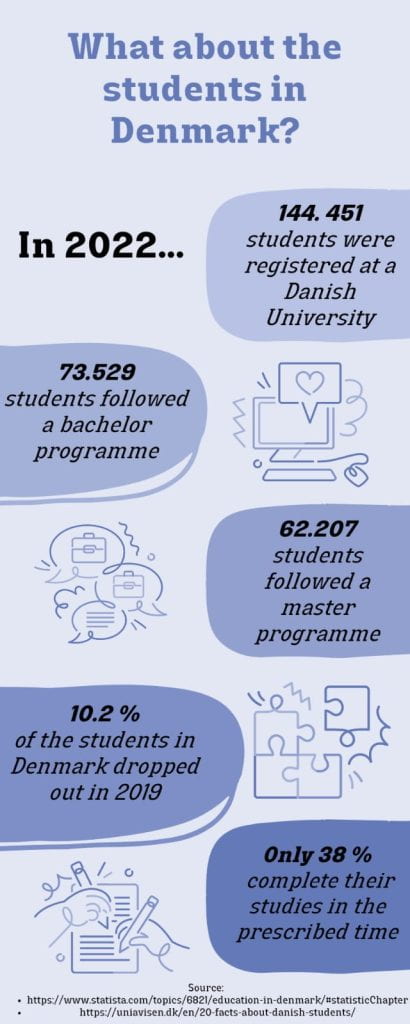The Danish Minister of Research and Education, Christina Egelund, presented the government’s idea to shorten study programs last March. With this new education reform, the Danish government will, among other things, shorten almost half of the country’s 500 master’s programs from two years to one year and three months.
By: Rajnandini Pandey and Larissa Kuiper
There are several reasons for this idea. First, the Danish government wants to save money by shortening master programs. They also want to focus the master’s more on the labor market by offering a short-term master’s degree and they want to create more education opportunities for everyone.
This initiative has taken the opposition by surprise, as they believe that this reform will be bad for the current education system. Some critics also see it as a hidden cost saving.
According to the government, there is a reform idea for higher education in Denmark. This can be seen, for example, in ‘Denmark, can do more III’, the most recent of three ubiquitous reform visions. They believe that higher education programs should be completely redesigned. But not all higher education students and professors agree.
Ebbe Andersen, a professor of Interdisciplinary Nanoscience at Aarhus University disagrees on the idea of the government shortening the master’s program.

Andersen said, students get most of the exciting courses in the 2 years program and they do practical master projects in the laboratory. “When it comes to the topic of economy, the government wants to save money. The government wants quality over quantity”, said Andersen.
Photo: Larissa Kuiper
According to the government plans, the first students could start the adapted master’s programs in 2028.
May Ellermann, a first year master’s student in chemical engineering at the Aarhus University said, “More students would drop out due to the workload if they completed their master’s degree in one year.”
Students would feel forced to work more than 70 hours a week since they would be compromising their years of study,” said Ellermann.
A 2 year masters degree programme is better than a year program as it helps with the career path and the future.
On the other hand, Karl Pundgaard, a student from the Danish School of Media and Journalism shared the same opinion.
“You might get more out of the two year master programmes, which will do you better for your future careers,” said Pundgaard.

